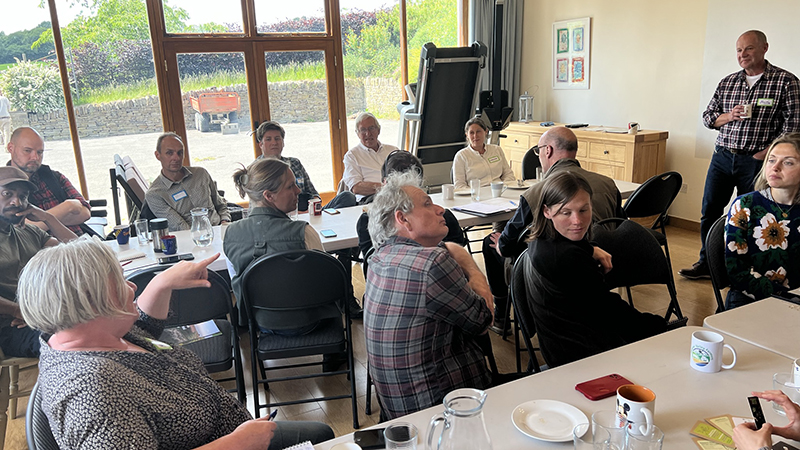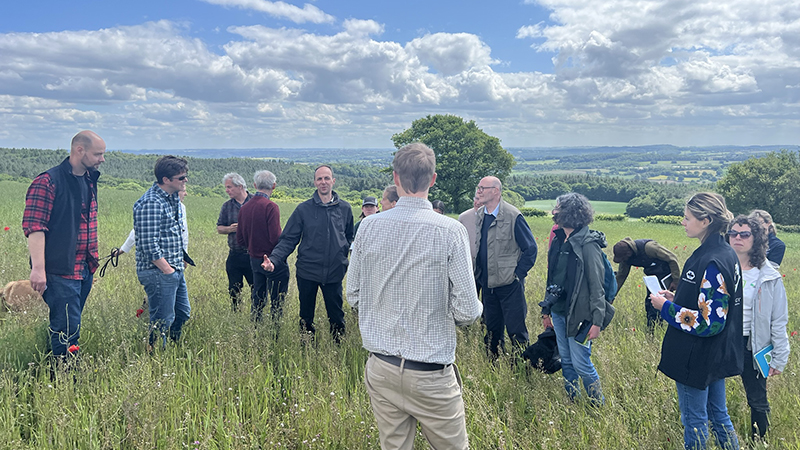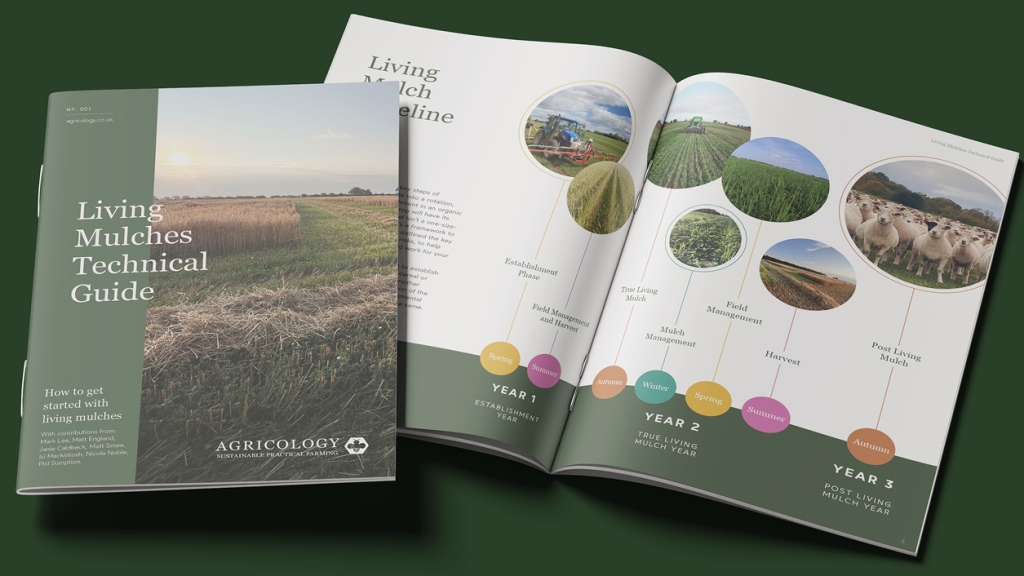Giulia Zoe Kessous reports back from an inspiring day at Denby Hall Farm on June 2nd. Hannah and Alex Fraser took over their 450 acre farm in 2018, and have since worked tirelessly to transform it into an organic haven. But they don’t stop there: their passion and curiosity drives them to explore practices that go beyond the baseline of organic standards, embracing regenerative organic approaches like living mulches and agroforestry.

The day started with an engaging and thought-provoking session led by Jonty Bronyee sparking conversations about what deep regenerative agriculture really means and the practical steps we can take to make it a reality. Jonty is an organic and agroecological farmer at Conygree Farm in the Cotswolds, and leads the regenerative agriculture programme at FarmED as well as the Emergent Generation youth network.
A living mulch is a semi-permanent legume understorey established as a living ground cover under an arable crop designed to remain in place for multiple years without the need for re-seeding. It can enhance soil health, suppress annual weed pressure, increase carbon sequestration and water infiltration.

The Living Mulch Farming System project investigates the potential of different understorey species, evaluating their impact on crop performance, weed suppression, and environmental outcomes. At Fraser’s farm, five different understoreys (including species mixes!) were sown in August, followed by winter wheat in mid-October.

The field looked promising, sparking passionate discussions on overcoming key challenges such as mulch establishment and managing competition with the wheat crop, barriers that have so far limited the widespread adoption of living mulches. Looking ahead, all eyes are on the second year of the trial, when the mulches will be better established.

Project leader Dr Catriona Willoughby said: “ORC are thrilled to contribute to this exciting project exploring the living mulches system with the Frasers. We are looking forward to carrying out a thorough programme of research this year to investigate the impact of living mulches on crops, soil and farm management”.
Data collection and analysis will begin at the end of June, and we can’t wait to share insights and progress. Stay tuned!
For more technical resources have a look at our past work, Agricology technical guide or Living mulches hub.

